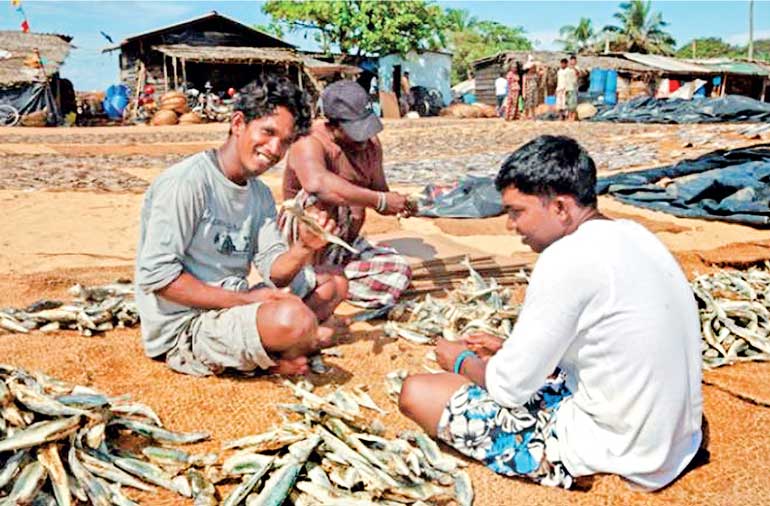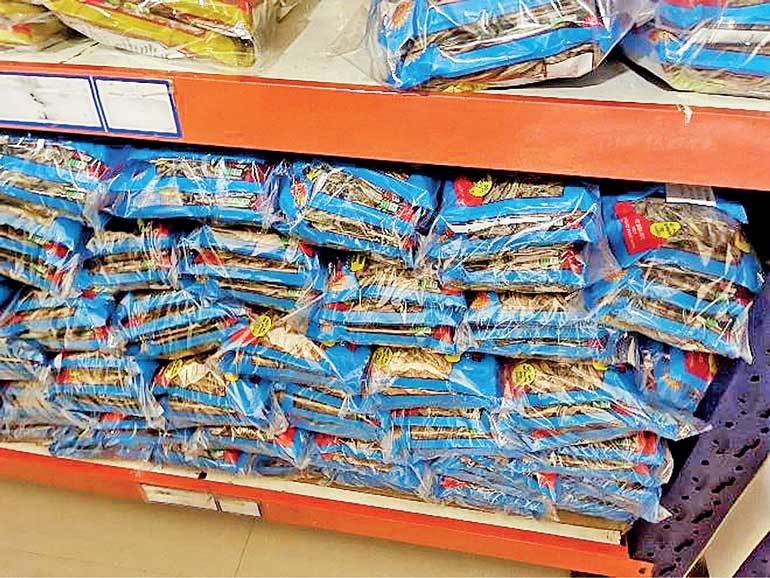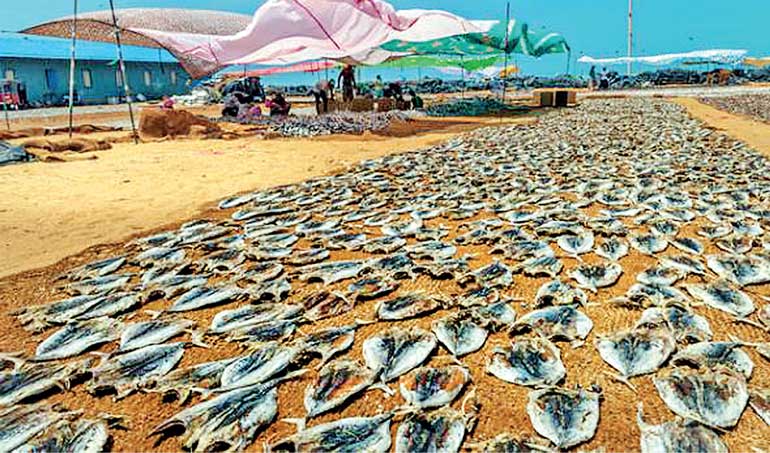Friday Feb 20, 2026
Friday Feb 20, 2026
Wednesday, 14 August 2024 00:00 - - {{hitsCtrl.values.hits}}

The transformation of Sri Lanka’s dried fish industry is well underway


By final-year mechanical engineering undergraduates from University of Moratuwa
The dried fish industry in Sri Lanka, a significant segment of the local economy, is undergoing a transformation aimed at overcoming long-standing challenges and enhancing its global competitiveness. This sector, traditionally plagued by bureaucratic hurdles, outdated practices, and limited market access, is seeing concerted efforts from various stakeholders, including Government entities, industry associations, and private companies, to streamline processes, modernise operations, and expand market reach.
Challenges facing the industry
The dried fish sector has faced a multitude of difficulties, ranging from cumbersome registration and permitting processes to inadequate training and financial issues. Historically, the process of formalising businesses within this industry has been burdened by complex legal procedures and slow dispute resolution mechanisms. These challenges have not only hampered the growth of the industry but have also made it difficult for small and medium-sized enterprises (SMEs) to thrive.
Furthermore, the industry has suffered from a lack of standardised vocational training programs, resulting in poor skill levels among workers. The absence of structured onboarding processes and regular training has exacerbated this issue, limiting the sector’s ability to innovate and maintain high-quality standards.
Government initiatives and modernisation efforts
In response to these challenges, the Sri Lankan Government is taking proactive measures to facilitate the industry’s growth. The introduction of online portals for the submission of applications aims to simplify the registration process, reducing costs and bureaucracy.
Additionally, the preparation of simplified guides in Sinhala and Tamil is designed to help SMEs understand and comply with legal formalities, food hygiene requirements, and Good Manufacturing Practices (GMP). To address the skill gap, companies are increasingly implementing structured onboarding processes and conducting regular training sessions to enhance both technical and interpersonal skills. This focus on human resource development is crucial for adopting modern technologies and improving overall productivity.
Market expansion and government support
The Sri Lankan Government, alongside industry stakeholders, is actively working to expand the market for dried fish products. Extension and marketing services are being intensified to address social issues, such as limited market growth and the absence of comprehensive marketing plans. By consulting with Government authorities, SMEs receive valuable recommendations for entering new markets, alongside specialised expertise on industry rules and food quality standards.
Trade fairs and exhibitions organised by both Governmental and non-Governmental institutions play a pivotal role in helping firms identify new opportunities and expand their reach. These events provide a platform for showcasing Sri Lanka’s dried fish products and connecting with potential international buyers.
Promising future
The transformation of Sri Lanka’s dried fish industry is well underway, with all stakeholders contributing to a shared vision of modernisation, market expansion, skill development, and sustainability. The collective efforts are expected to boost the economy significantly, ensuring that Sri Lanka’s dried fish products meet the highest quality standards and appeal to a global market.
As the industry continues to evolve, it remains poised to overcome its challenges and achieve substantial growth, bolstered by Government support and private sector innovation. The future of Sri Lanka’s dried fish industry looks promising, with the potential to make a significant impact both domestically and internationally.